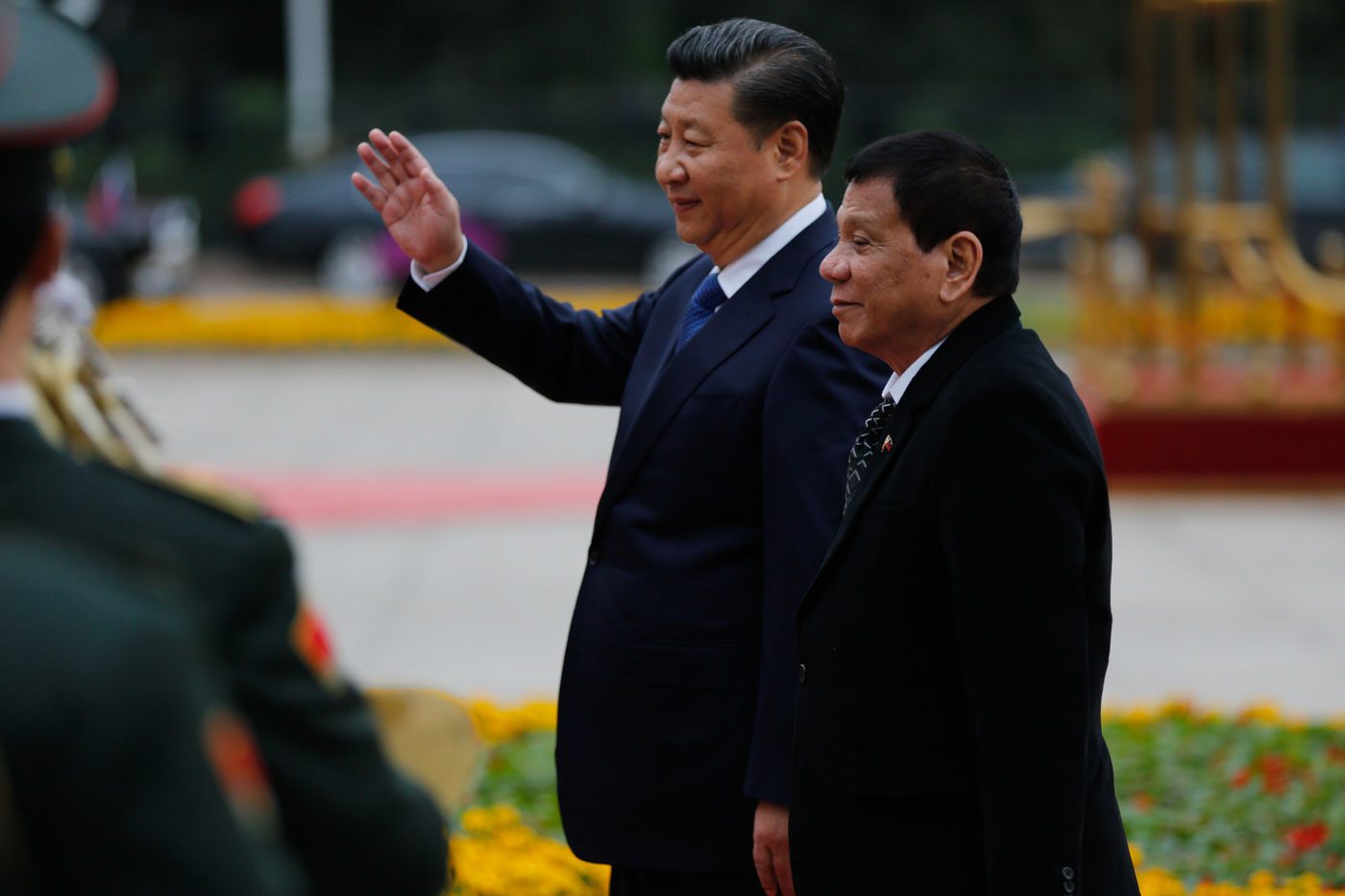SUMMARY
This is AI generated summarization, which may have errors. For context, always refer to the full article.

MANILA, Philippines (UPDATED) – Malacañang on Saturday, March 23, downplayed the complaint of former Philippine officials against Chinese President Xi Jinping before the International Criminal Court (ICC) as a “futile exercise.”
President Spokesperson and Chief Presidential Counsel Salvador Panelo said in a statement that the ICC, in the first place, has no jurisdiction over both China and the Philippines.
“It [the case] could be dismissed because China is not a member of the ICC, so is the Philippines. The filing of the complaint may be a futile exercise. The ICC has no jurisdiction over China,” he said.
On Thursday, March 21, former foreign secretary Albert del Rosario and former ombudsman Conchita Carpio Morales announced that they had filed the complaint against Xi and other Chinese officials for crimes against humanity over environmental damage in the South China Sea.
The complainants, who included a group of fishermen, said these alleged crimes “involve massive, near-permanent, and devastating environmental damage across nations.”
The complaint was filed on March 15, two days before the effectivity of the Philippines’ withdrawal from the ICC. The complainants said they filed the complaint to “check impunity.”
No authority?
Panelo said while Del Rosario and Morales “may have the right to file the complaint” as individuals “motivated with righteous indignation over the establishment of structures on some parts of the South China Sea which have been ruled to be rightfully belonging to us,” they have no authority to do so on behalf of the Philippine government.
“The complainants are also not authorized to lodge a complaint against China at the ICC on behalf of the Philippines, and even if they are so authorized, since our position is that the ICC has never acquired jurisdiction over us given that the Rome Statute never took effect as the requirement of publication in a newspaper of general circulation or in the Official Gazette was not complied with,” he said, reiterating the Duterte administration’s position for withdrawing from the ICC.
“Assuming that they are so authorized, the Philippines, like China, as we have said, is not a State Party to the ICC hence the latter cannot take jurisdiction,” Panelo added
Question of jurisdiction
Panelo said the Rome Statute does not cover environmental damage.
“What it includes are murder; extermination; enslavement; forcible transfer of population; severe deprivation of physical liberty; torture; rape or sexual slavery; political, racial, religious, ethnic or gender persecution; enforced disappearances; or other inhumane acts causing great suffering or serious injury to physical or mental health, hence even assuming that the Philippines was a State Party when the complaint was filed, there could be an issue as regards the jurisdiction of the ICC,” he said.
Panelo, in an updated statement on Saturday afternoon, said the exception to this would be if “environmental damage can be considered as ‘other inhuman acts,’ which could be an over stretch.”
Panelo also provided an answer to critics in the event the complaint is dismissed.
“The critics and detractors will have a field day criticizing the President in the event the case is dismissed by the ICC for lack of jurisdiction. They can claim that it was a mistake for the Philippine government to withdraw its membership from the Rome Statute as the ICC can no longer serve as a venue to prosecute President Xi for an alleged commission of crime against humanity,” he said.
‘Diplomatic negotiation’
Panelo said that under the Duterte administration, the Philippines can discuss any Wst Philippine Sea concerns with China directly.
“We reiterate, however, that the Philippines under the Duterte Administration is engaged in a diplomatic negotiation, through a bilateral consultation mechanism (BCM), over the West Philippine Sea issue,” he said.
Since he assumed office in 2016, Duterte has taken a different approach to China’s incursions in the West Philippine Sea even after the Philippines’ historic victory against the regional giant on the dispute before the Permanent Court of Arbitration in The Hague, the Netherlands, just weeks after he became president.
Nearly halfway into its term, the Duterte administration has still not taken up the Philippines’ West Philippine Sea victory with China and has refused to publicly protest China’s moves in the area because agitating China would supposedly court war – a claim debunked by experts.
While China repeatedly stressed its stronger ties with the Philippines under Duterte, it did not cease its militarization of areas in the South China Sea, while its Coast Guard continued to patrol areas within the Philippines exclusive economic zone, like Panatag Shoal, in some cases harassing Filipino fishermen and a local news crew.
Last year, it was observed that China entered a new phase in its militarization of artificial islands in the South China Sea with the increased deployment of military vessels and equipment. – Rappler.com
Add a comment
How does this make you feel?
There are no comments yet. Add your comment to start the conversation.